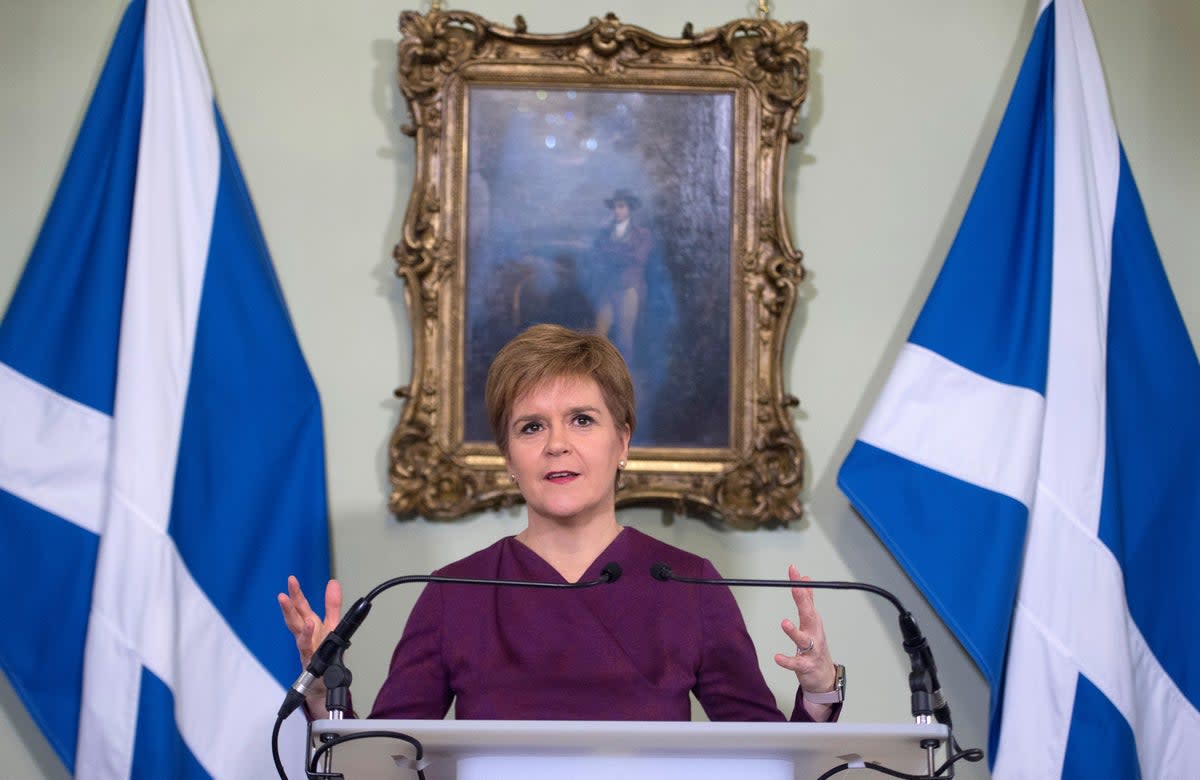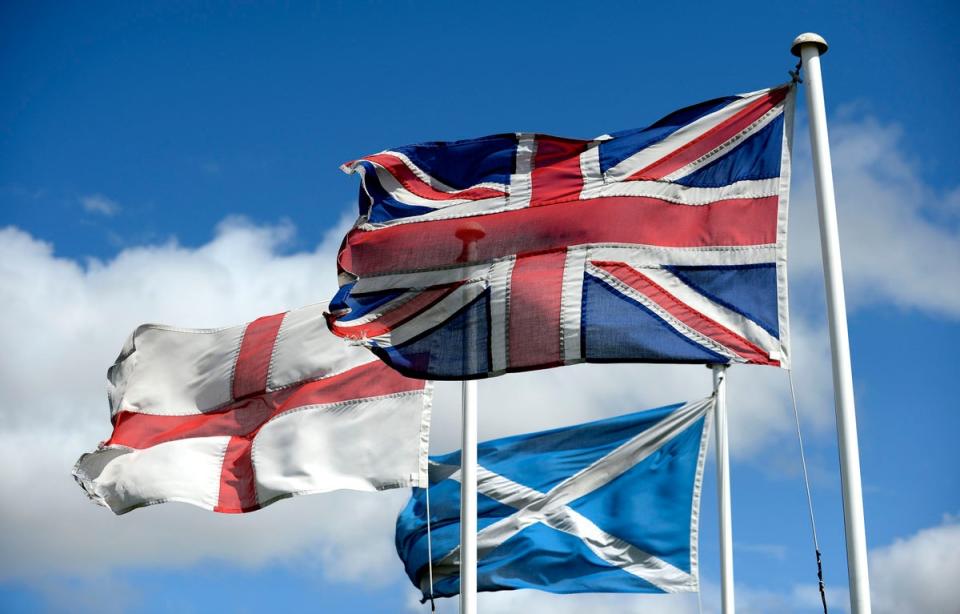IndyRef2: Supreme Court to hear arguments for Scottish independence today

The Supreme Court is to rule on whether IndyRef2 – a second referendum on Scottish independence – can go ahead without permission from the UK Government.
The arguments will be made to judges October 11 and October 12 with a decision expected to be made within six to eight weeks according to Lord Hope, a former deputy president of the Supreme Court.
The result could give Scottish people another say on their independence, following the referendum in 2014, when a small majority voted to remain in the UK.
Now, Scottish First Minister Nicola Sturgeon is intending to hold a second vote – but the Supreme Court is to decide on whether or not this can go ahead. Find out why below.
What is IndyRef2?
IndyRef2 is a nickname for the second independence referendum that Scottish First Minister Nicola Sturgeon intends to hold this month.
The first referendum was held on September 18, 2014, when 55 per cent of Scotland voted against independence.
However, during the Brexit referendum, while the UK voted to leave the European Union, 62 per cent of Scotland voted to remain.

The SNP argued that “Scotland being taken out of the EU against our will” would justify a second vote on independence.
Sturgeon then requested that a referendum vote be held in 2020, but the prime minister at the time, Boris Johnson, refused.
Despite this, the 2021 Scottish parliament election campaign resulted in a pro-referendum majority.
In 2022, Sturgeon set out plans to hold a referendum vote, which she intends to hold on October 19, 2023.
Why is the Supreme Court ruling on the indyref2 case?
There has been a debate over whether Scotland has the power to pass a referendum bill without the backing of Westminster.
When campaigning to become the leader of the Conservatives, Prime Minister Liz Truss said she would “not allow” another vote on independence.
In 2014, the UK and Scotland agreed on the terms, which would give Scotland the power to hold a referendum, but this was only temporary.

Therefore, the Supreme Court is to rule on the Scottish government’s plans for an independence referendum, and whether or not Holyrood has the power to go ahead with the vote.
The Supreme Court is the final court of appeal in the UK for civil cases, and for criminal cases from England, Wales, and Northern Ireland.
The draft bill, which the judges will consider, states that the aim of the referendum is to “ascertain the views of the people of Scotland on whether Scotland should be an independent country”.
Who is representing the two sides?
The Scottish Government's senior lawyer, Lord Advocate Dorothy Bain KC, is listed as the case's applicant.
While the respondent is identified as Lord Keith Stewart KC, the Advocate General for Scotland. He will be speaking for UK ministers on matters involving Scottish laws and his legal team includes Sir James Eadie KC.
There are five judges listened on the case and they are: Lord Reed, Lord Lloyd-Jones, Lord Sales, Lord Stephens and Lady Rose.
What would the Supreme Court’s decision mean for Scottish independence?
If the Supreme Court grants Holyrood permission to go ahead with the vote without the UK’s permission, Sturgeon could hold the referendum next October, as she intends.
During the referendum, Scottish people will be asked to vote on whether they wish to remain in the UK or become an independent country.
If the majority of voters are in favour of independence, the Scottish government and the UK government could begin negotiating the separation agreement and the future relationship between the two countries.
If the majority of voters choose to remain in the UK, it is unlikely that the Scottish government would be able to hold another referendum in the near future.
How to watch
The case can be watched live via the Supreme Court’s broadcasting system on their website.
The hearing begins today, October 11 and ends on October 12.

